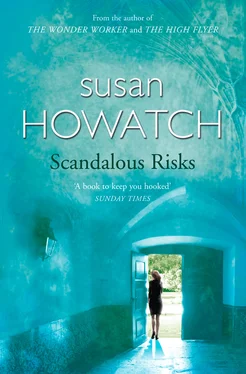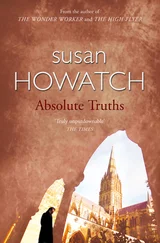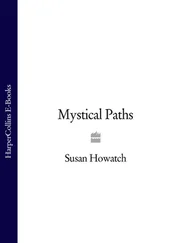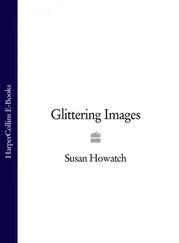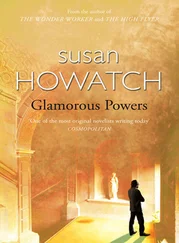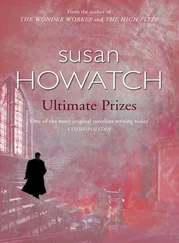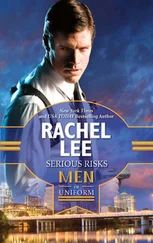‘I’ve come to the conclusion that Mr Aysgarth’s a great blessing,’ said my mother to me later. ‘Clever men like your papa become bored if they don’t have other clever men to talk to, so perhaps now he’s discovered Mr Aysgarth he won’t be such a crosspatch whenever he’s obliged to leave London and spend time at Flaxton Hall.’
I said: ‘If I read Greats up at Oxford, would Papa like me better?’
‘Darling, what a thing to say! Papa adores you – look how he stood up for you about the inkpot! Papa and I love all our children,’ said my mother vaguely, wandering away from me to attend to her plants in the conservatory, ‘and you’re a very lucky little girl to belong to such a happy family.’
I stood alone, staring after her, and wished I could be one of the exotic plants to which she paid so much devoted attention.
Aysgarth had a brother, who taught classics at a minor public school in Sussex, and a sister, who lived in the south London suburbs, but these siblings were rarely mentioned; he was fond of them but they had no place in the world he had carved out for himself since he had entered the Church. He had decided to be a clergyman when he was up at Oxford on his scholarship. This had been a brave decision, since he had had no money and no influential clerical connections, but Aysgarth was capable of great daring and possessed the iron nerves of a successful gambler.
‘Aysgarth may look the soul of propriety in his clerical uniform,’ my father remarked once to my mother, ‘but by God, he takes scandalous risks!’ My father often talked riskily, particularly when he succumbed to the childish urge to shock people he disliked, but in fact he lived a very conventional life for a man of his class. If he had been Aysgarth, obliged to make his own way in the world, he would have played safe, using the Oxford scholarship to follow an academic career. To enter the Church, where salaries were risible and worldly success for any self-made man was unlikely, would have struck my father as being reckless to the point of lunacy. Outwardly opposed to Christianity but inwardly attracted to the aspects which coincided with his own old-fashioned, sentimental liberal humanism, he was enthralled by the madcap idealism which seemed to him to characterise Aysgarth’s choice of a profession.
‘It was such a courageous step to take, Aysgarth!’
‘Nonsense! God called me to serve Him in the Church, so that was that. One doesn’t argue with God.’
‘But your intellect – surely you were obliged to give rational consideration to –’
‘What could be more rational than the decision to use my gifts in a way which would most clearly manifest my moral and intellectual convictions?’
My father was silent. Unable to risk believing in knowledge which his arrogant intellect deemed unknowable, he was speechless when confronted by Aysgarth’s act of faith. No rhetoric from an evangelist could have dented my father’s agnosticism, but Aysgarth, never speaking of Christianity unless my father raised the subject, presented the most powerful apologetic merely by revealing his life story. My father was baffled but respectful, disapproving yet filled with admiration.
‘But how did you have the nerve to marry when you were still a curate? Wasn’t that an absolutely scandalous risk for a penniless young man to take?’
‘I’d been engaged for seven years – wouldn’t it have been even more of a scandalous risk if I’d waited a day longer?’ retorted Aysgarth, and added to my mother as if he knew he could rely on her sympathy: ‘I regarded my first wife as the great prize which lay waiting for me at the end of my early struggles to get on in the world.’
‘So romantic!’ sighed my mother predictably.
‘Mr Aysgarth,’ I said, fascinated by his unembarrassed reference earlier in the conversation to the Deity whom my family felt it bad taste to discuss, ‘did God tell you to marry, just as He told you to be a clergyman?’
‘Be quiet, Venetia, and don’t interrupt,’ said my father irritably. ‘Sophie, why isn’t that child in bed?’
But my Mr Dean – my Mr Archdeacon as he was then – merely winked at me and said: ‘We might talk about God one day, Vanilla, if you’ve nothing better to do,’ and when both my parents demanded to know why he was addressing me as if I were an ice-cream, I realised with gratitude that he had diverted them from all thought of my bedtime.
According to various people who could remember her, Aysgarth’s first wife had been beautiful, intelligent, charming, religious and utterly devoted to her husband and children. Aysgarth seldom mentioned her but once when he said: ‘Grace was much too good for me,’ he sounded so abrupt that I realised any question about her would have exacerbated a grief which was still capable of being painfully recalled. The marriage had produced five children, four boys and a girl, Primrose, who was my age. The children were all either brilliantly clever or remarkably good-looking or, as in the case of Christian and Norman, both. James, the third son, was good-looking but not clever, and Alexander, the youngest, was clever but not good-looking. Primrose, who had a face like a horse, was brilliant and I became close friends with her, but I shall return to the subject of Primrose later.
Then in 1942 when Christian, the eldest, was fifteen and Alexander was little more than a baby, the first Mrs Aysgarth died and my Mr Archdeacon became entangled with the appalling creature who was to become his second wife. She was a society girl, famed for her eccentricities. Everyone declared that no woman could have been less suitable for a clergyman, but Aysgarth, bold as ever, ignored this judgement and lured his femme fatale to the altar soon after the end of the war. Everyone then proclaimed that the marriage would never last and he would be ruined, but ‘everyone’, for once, was wrong.
A year after the marriage came the vital meeting with my family. ‘All clergymen with balls should be encouraged!’ pronounced my father, and proceeded to throw his weight about at Westminster in an effort to win preferment for his new friend. Having devoted many years of his life to politics in the House of Lords my father was not without influence, and the Church of England, under the control of the Crown, was always vulnerable to the meddling of the Crown’s servants in the Lords and Commons. Usually the Church succeeded in going its own way without too much trouble, but although on ecclesiastical matters the Prime Minister took care to listen to the leading churchmen, he was not obliged to act on their advice. This situation occasionally reduced eminent clerics to apoplectic frenzy and led to chilly relations between Church and State.
Into this delicate constitutional minefield my father now charged, but fortunately it proved unnecessary for him to charge too hard because Aysgarth was well qualified for a choice promotion; he had been appointed archdeacon at an unusually early age after winning the attention of the famous Bishop Jardine who had romped around Starbridge in the 1930s. Jardine had retired before the war in order to swill port in Oxfordshire, and without a powerful benefactor a self-made man such as Aysgarth might well have languished in the provinces for the rest of his career, but he did have an excellent curriculum vitae and my father did have the urge to play God. In consequence Aysgarth’s transfer to London, where his talents could be fully displayed to the people who mattered, was hardly a big surprise.
‘If you’re an agnostic,’ I said to my father at one stage of his campaign, ‘why are you getting so mixed up with the Church?’
‘The Church of England,’ said my father grandly, ‘belongs to all Englishmen, even unbelievers. It’s a national institution which for moral reasons deserves to be encouraged, and never forget, Venetia, that although I’m an agnostic and even, in moments of despair, an atheist, I remain always an exceedingly moral man. This means, inter alia , that I consider it my absolute moral duty to ensure that the Church is run by the very best men available.’
Читать дальше
